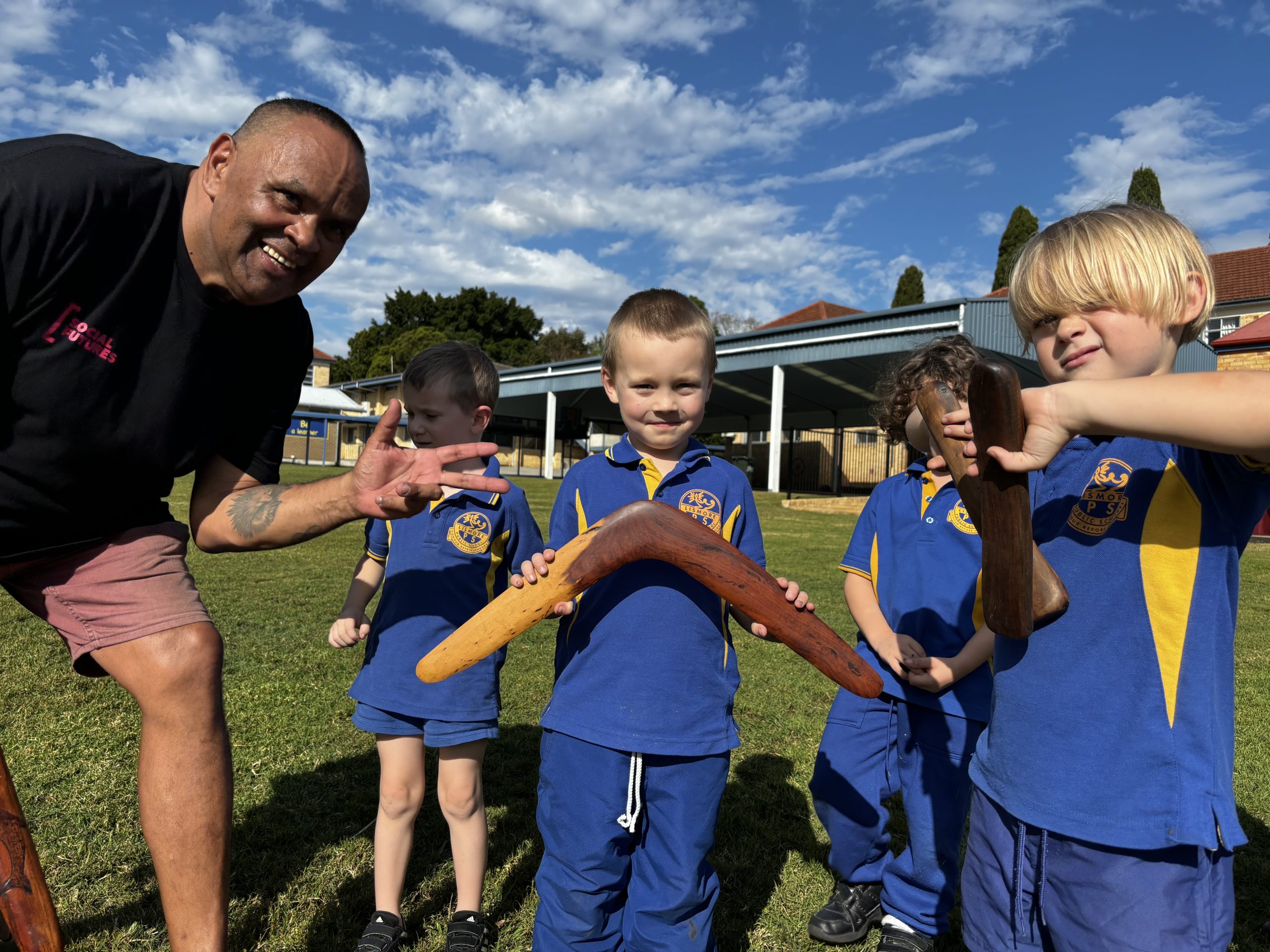
Students at Lismore Public School are learning how First Nations communities approach disability and inclusion through a free program being delivered to schools, Milkiri.
In the lead up to NAIDOC Week, students at Lismore Public School are learning how First Nations communities approach disability and inclusion through a free program being delivered to schools.
The Milkiri Inclusion in Culture program was designed by Social Futures NDIS local area coordinator Richard Clarke, a proud Ngemba man from Brewarrina in Northwest NSW. Social Futures is a proud NDIS partner.
Richard explains four key perspectives of disability from his culture – everybody is different, everybody has a role, we take care of each other, and staying connected to mind, body, spirit and country helps to keep us strong.
“That’s the message I emphasise in schools – we may be different, but everyone is still valued, has a role and is needed by their community,” said Richard.
Richard’s grandfather used a wheelchair, and this didn’t stop him from playing an important role teaching Richard and others about culture, country, stories and bush foods.
Since creating Milkiri, Richard has visited more than 30 schools and met with more than 3000 students.
Richard explores ideas around disability through dances, demonstrations, songs and storytelling. He also introduces students to Aboriginal tools and artifacts, including explaining the importance of the digeridoo.
The name Milkiri is a Ngemba word meaning ‘ant dance’ and was given to Richard by his Uncle Roy to use when teaching others about culture.
“I engage students through culture, and after the Acknowledgement of Country I ask them to think about where they come from, where they are connected, and who their mob is,” he said.
The children have given the program glowing reviews. One student told ‘Uncle Richard’ that he now understood it was okay not be the same as everyone else.
“I always leave schools with a sense of pride because the students have learnt something from me, and I also get to see the Aboriginal students step up and share their culture with their class peers.
“I witness them explaining, ‘This is how you do that’ and then I again feel so proud. I thank those students for sharing.”
Richard, a Ngemba man, has sought the permission of the Bundjalung Elders of northern New South Wales to showcase Milkiri on Bundjalung country.
“I am grateful to have this opportunity to share my culture and demonstrate how it is so inclusive,” he said. “I always pay my respects to my people and to the Bundjalung people.”
The idea for Milkiri came from a conversation Richard and an LAC colleague had while they were discussing community and the importance of inclusion at The Koori Mail hub in Lismore a month after the 2022 floods.
“I was explaining the many ways First Nations families and communities support each other, valuing difference through roles, responsibilities, and kinship,” Richard said.
“From that Milkiri was born.”
Exploring Disability and Inclusion from an Aboriginal Cultural Perspective, Milkiri is a Northern NSW school program to help students understand disability inclusion from an Aboriginal Cultural perspective.
For bookings and information on participating in the Milkiri program, Northern Rivers schools can call 1800 522 679 or visit https://socialfutures.org.au/service/milkiri-ant-dance/
Media and interview enquiries: Kylie Perrett | [email protected] | 0427 556 892